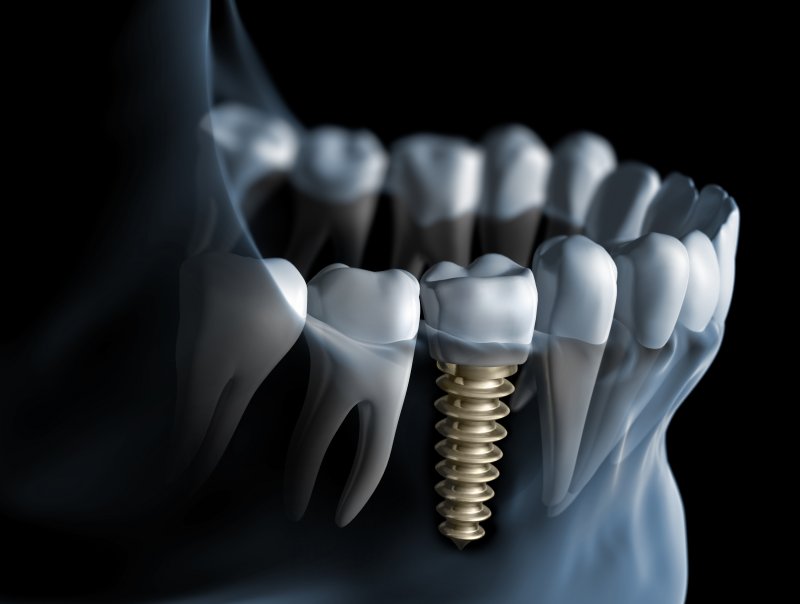
Things you once found easy, like speaking and chewing, can become challenging when you are missing your natural teeth. Not only do you struggle to eat some of your favorite foods, but over time, your jawbone will begin to shrink and leave you with a more aged appearance. However, with modern dental technology there are several ways that missing teeth can be replaced. A preferred method by dentists and patients alike is dental implants, but they aren’t for everyone. Continue reading to learn what makes a good dental implant candidate.
Strong Jawbone
When you’re missing teeth, your jawbone will begin to deteriorate over time because it isn’t being stimulated by regular chewing in the areas where your natural teeth are missing. For a dental implant to be successful, it’s important that they are anchored in a jawbone that is sufficient enough to support them for a long period of time.
Optimal Gum Health
Dental implants are even more vulnerable to gum inflammation than your natural teeth are. If you develop periodontal disease, which is an infection of the gum tissue, the gum can detach from the implant and create pockets that will fill up with bacteria. As it progresses, bacteria will begin attacking your jawbone and cause your dental implants to fail.
Good Oral Hygiene
Just like your regular teeth, it is important to maintain your dental implants through regular brushing and flossing every single day. Using a mouthwash is also a great step to reduce bacteria in the mouth that could lead to issues with your surrounding teeth and soft tissues.
Healthy Lifestyle Choices
Patients who live a riskier lifestyle are more likely to experience a dental implant failure. For instance, if you smoke tobacco products, you have an increased risk of gum disease and are interfering with the healing process. This increases your chance of complications. It’s important to refrain from smoking for 2-3 months after your procedure. Drinking heavily can also interfere with this healing process by causing dry mouth and inhibiting the clotting of blood. Both these habits are highly destructive, especially if you are getting dental implants.
Good Overall Health
Dental implants are ideal for those who are not suffering from any chronic diseases. Conditions like diabetes interfere with the process of fusion between the implant and jawbone as well as slowing down the healing process and increasing your probability of developing periodontal disease. Other conditions, like sleep apnea and heart disease, can create complications related to the anesthesia. You should address any chronic health issues with your dentist.
If all of these characteristics should like you, chances are that you are an ideal candidate for dental implants. But ultimately, it is up to your dentist to help you decide if they would be a good way to restore your smile.
About the Author
Dr. Kathy Lam provides a wide array of services, including dental implants, at her practice in Wheaton, IL. She earned her Doctor of Dental Surgery at Howard University College of Dentistry and is committed to regularly undergoing continuing education courses through Spear. For more information about dental implants or to schedule a consultation with Dr. Lam, visit her website or call (630) 653-7720.
